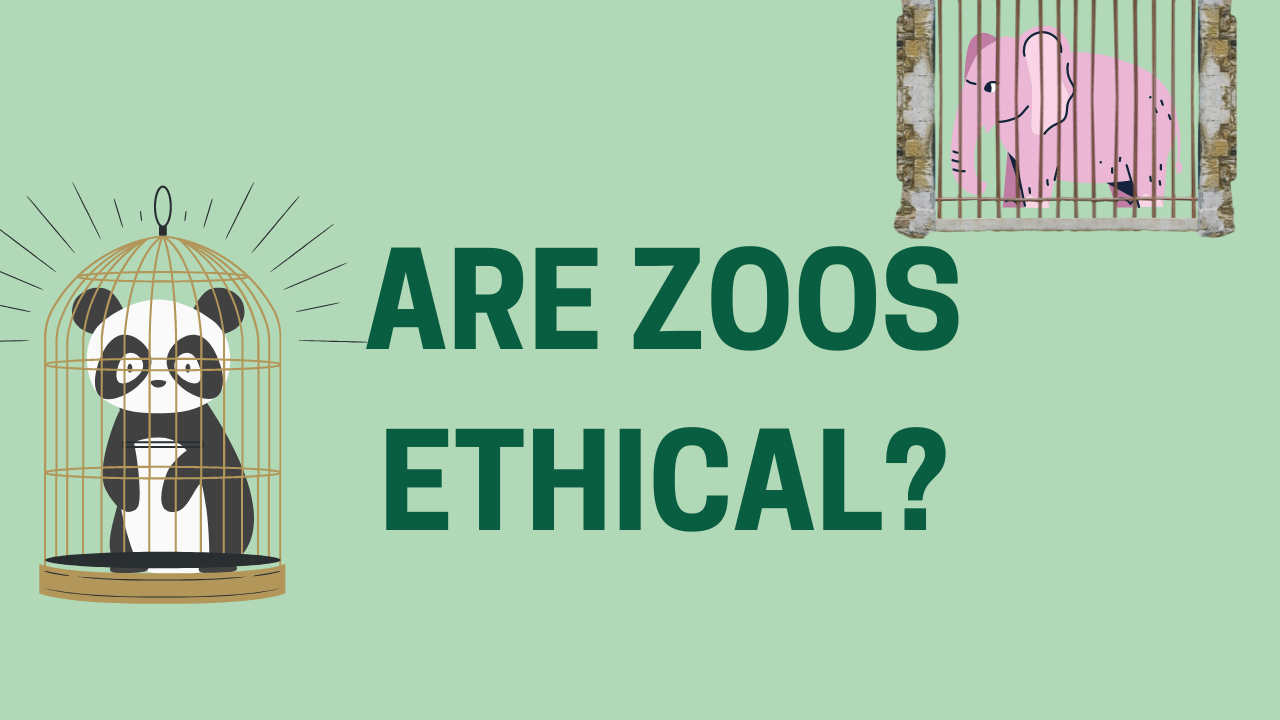Riya Shah
eSomethin staff
Zoo animals are taken out of their habitats, from their environments and are put in isolation, while an artificial world surrounds them. Zoologists should be sent to the animals natural habitats to learn about them, rather than capturing the animals.
People outside flash their bright cameras in the animals’ eyes and little kids poke fingers inside their cells. All of the animals’ rights are involuntarily snatched from them. Animals in zoos go through this experience far too often all over the world. Zoos do more harm than good to animals, so it is time to call their ethics into question.
Zoos cannot provide even a fraction of what their animals’ natural habitats should be like. It makes sense that zoos are not able to exactly replicate jungles, rainforests or deserts; however, that does not mean that these animals should be locked up with steel bars and chains instead.
An elephant at the Targu Mures Zoo in Romania, called Tania, was locked up alone for 39 years and was forced to stand in her own feces and urine because the zoo rarely cleaned out the small, cramped cells. This treatment shows that many zoos do not care about the well being of their animals and house them extremely poorly.
Animals experience “zoochosis”
Being in a zoo is essentially psychological torture for animals. When animals are taken out of their normal environment and placed in solitary cells, they experience frustration, boredom, loneliness and desperation. Their repetitive attempt at coping is known as zoochosis.
Zoochosis is the stereotypical behavior that captive animals display that has no obvious goal or function. According to the findings of a 2001 study done by Meredith Bashaw, around 80% of all zoo animals have zoochosis. Animals that are kept in their natural environment do not experience this psychotic state, proving that it is abnormal for animals, and that it is the zoos that are causing this behavior. Some examples of zoochosis include bar biting, neck twisting, swaying/pacing/circling and even, in some cases, self-mutilation.
An example of zoochosis is a polar bear named Gus in Central Park Zoo. Gus displayed neurotic behavior by swimming in figure eights in his cramped pool, sometimes up to 12 hours a day. He would also stalk children and watch them from the class in a predatory way. The New York Times confirmed that Gus had zoochosis.
Accusations of mistreatment
Additionally, a large number of zoos around the world have been accused of severely mistreating their animals. The World Association of Zoos and Aquariums flagged many different zoos for forcing their animals to perform all kinds of unnatural, unsafe acts for the public to be entertained. Rachel Forbar, National Geographic writer, stated some recorded situations where zoos have mistreated their animals by making big cats perform in gladiator-style shows, elephants play basketball and diapered chimpanzees ride scooters.
Playing sports or riding bikes is not something that comes naturally to these animals. They are forced into learning these absurd tricks through hours and hours of abuse.
Some may argue, saying that zoos provide many different jobs for people of all ages. However, it is possible to find a job that pays well that does not encourage or tolerate animal capture and abuse.
Others might even claim that zoos are educational for people wanting to learn about animals. However, it is possible to learn about an animal without it being trapped in a cage. The money that is put into these zoos could instead be used to send zoologists— scientists that study animals and animal life—to visit the animals on their own turf. The zoologist could examine and learn a wide multitude of information about animals without snatching them from their home and natural environment to bring them back to be subjected to years of abuse and neglect.
Although many little kids and teens enjoy zoos a lot and look forward to visiting them to be entertained, is watching animals pace around neurotically in their enclosures truly good entertainment?
What should be done?
Zoos cannot provide anything nearly close to what animals have in their natural habitat. Many zoos have been caught treating their animals horribly. Zoo animals are essentially taken from the wild and held hostage in a small, confined cell, for the rest of their life. All in all, zoos are unethical because of their harsh and horrible treatment of animals.
It would be ideal for all zoo animals to be released back into their natural habitat so that they can live the way they were meant to. An increase in the funding of the study of zoology so that more zoologists can be sent to learn about animals in a more friendly manner would be an exceptional way for knowledge about animals to grow. The only way that animals can be truly safe in this world is if they are released from zoos that they are held captive in.
Other editorials on eSomethin
- Photo gallery: Boys varsity lacrosse team perseveres, eventually scoring close win against Anthony Wayne Generals
- Reed Gerken gets unofficial offer from University of Miami
- Perrysburg’s sixth grade camp tradition to cease next school year
- Explore the 2024 Solar Eclipse: History, Safety, How To Experience It
- Celsius energy drink flows through water fountains on April 1st




